
Since Rugby Union went professional 17 years ago, there has been a slow process of continual professionalisation in the various areas of the game.
The first and easiest part was paying the players for their efforts on the field, but even that wasn’t without its problems as all the players had other jobs.
The amounts that were paid to the players had to be a big enough incentive for them either to take a lengthy sabbatical, or leave their jobs. When that was added to all the extra costs that professionalism incurred, it was, and still is, more than the game can truly afford – without impacting on funding levels in the community game.
Professional players owe a debt of gratitude to Moon who also started the first players union in 1996 to protect the players’ interests in the new era.
A rival players association (the PRA) was set up in1998 by a former employee of Moon’s association (Damian Hopley) and, having attracted a larger membership of Premiership players, became the one that received RFU funding which ultimately lead to the dissolution of Moon’s union.
However, it was always going to be the community game that paid the cost of professionalism as that other staple of professionalism (the contract), quickly became part of the senior game and is still found only in the professional game between the Union and professional clubs.
The first act of the clubs that had to suddenly find the money to pay the new professional players, was to form a professional body (Premiership Rugby Limited). This represented them collectively in dealings with the RFU and sought legally binding contracts to ensure guaranteed funding that would not be reduced. Therefore any shortfall the RFU had would have to be made up from other areas of the game – namely community rugby.
What became apparent to the RFU was that the committee structure that had served the game well in the amateur days was too slow and cumbersome to deal effectively with the new professional clubs, so a ‘professional’ management board was put in place to speed up Union business.
Over the years, there has been any number of occasions where these professional bodies have ably represented their respective members in negotiations and disputes with each other but coaching was always one area of the game where no collective representation existed.
Coaching has always been an ephemeral trade dependant on the patience of those above and the success or failure of those you coach. It’s a trade where the basic tenants can be taught, but it is often those that don’t ‘follow the manual’ that have the greatest success.
Often the coach will get the blame for the failings of the management who willingly accept the plaudits when the team have any success but look for scapegoats if things go wrong.
If a team is losing the manger, head coach or director of rugby will blame the coaches for the poor results despite the fact that they have usually chosen the various coaches in the first place.
Part of the reason for this is it’s cheaper to change the coach than it is to replace the players and it also gives the head coach a breathing space to get things right.
As a result, we have seen the Premiership evolve into a merry-go-round where a coach is appointed and then removed before there is a reasonable time for him to make a difference.
I have to say that I believe coaches do have a limited time when they are effective without a major change of players and I feel that is between three to six years.
The first couple of years are spent getting to know your squad and making the necessary changes to the playing style that you believe gives your team the best shot at winning, which should be followed by a steady progress of improving results.
The problem with a professional game where there is promotion and relegation is that, generally speaking, there is no long term view.
It’s an all or nothing approach where winning is everything and must be achieved instantly, if not a new coach is brought in and is expected to turn around a sinking ship normally without very much time or money.
Take Sale for instance. Since the start of the season only eight weeks ago, they have already sacked forwards coach Steve Scott (after just four weeks) and ‘repositioned’ Bryan Redpath under the incoming John Mitchell despite Redpath joining the club only a few weeks before the start of the season and not really having time to get any new system to work.
With new players (Riche Gray, Danny Cipriani, etc) and a new coaching setup it should have been obvious to all that it would take some time before the team would find their feet and produce results. But being rooted to the bottom of the Premiership, with one point from six games, proved a step too far for director of rugby Steve Diamond who (under pressure one must think from owner Brian Kennedy) has acted to ‘stop the rot’ despite some of the senior players admitting it was the players’ fault.
With the newly formed RCA’s backing, it may be that the merry-go-round will slow down and give coaches time to do the job they were employed to do.


Miscellaneous
The Best Rugby Themed Games
Features
OSCAR WILSON




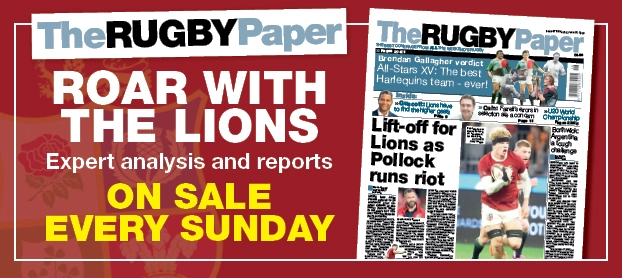













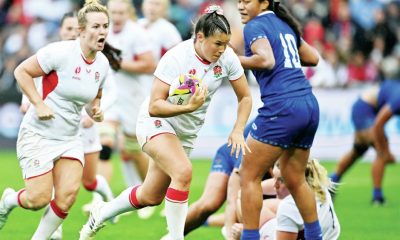

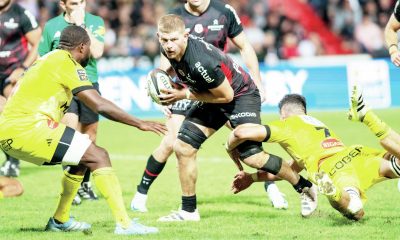

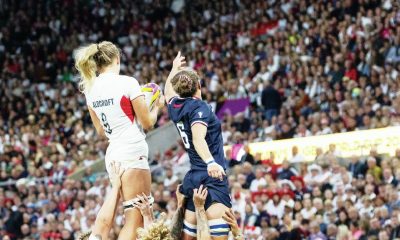

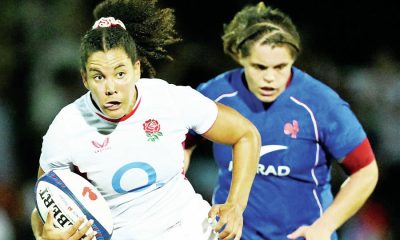



You must be logged in to post a comment Login